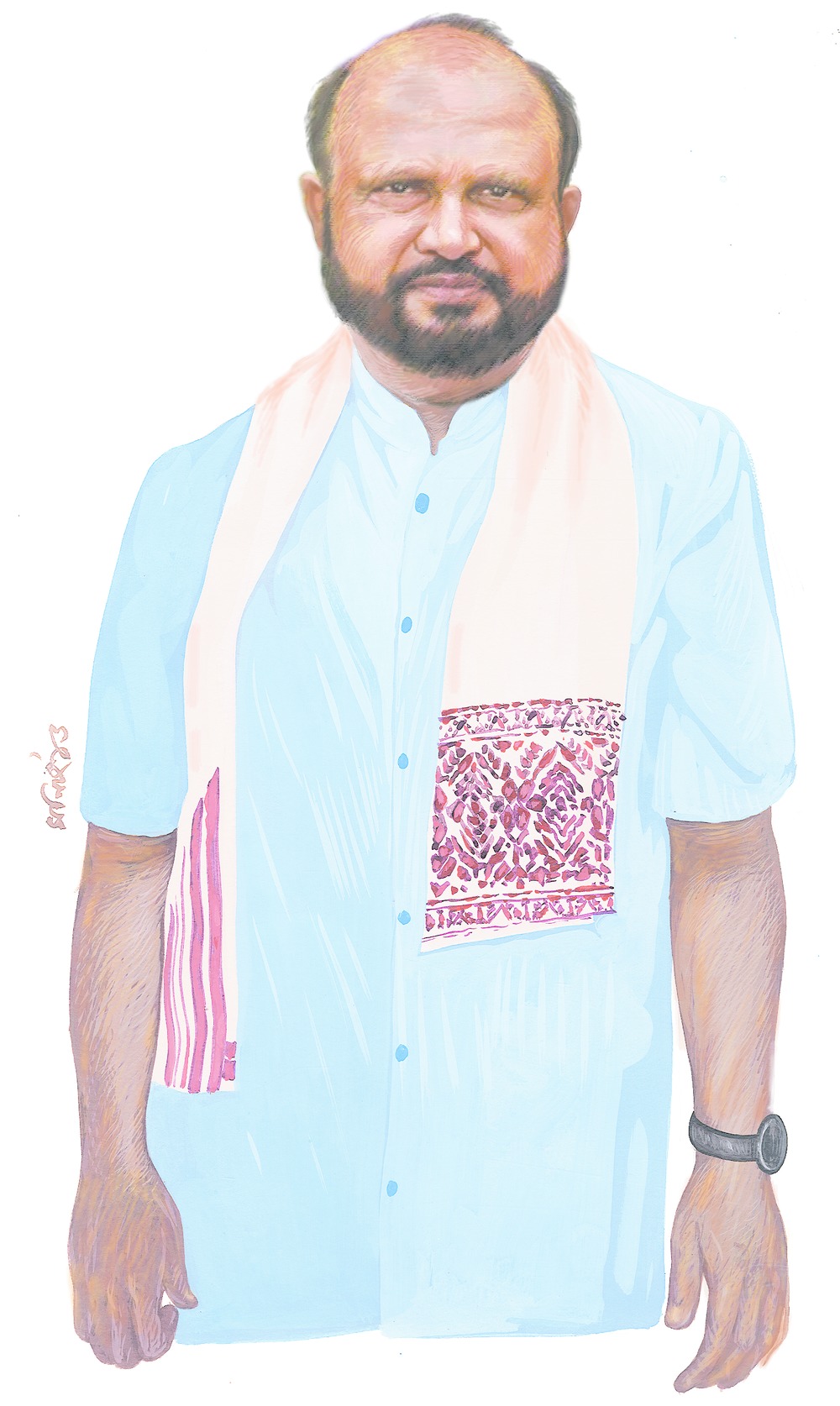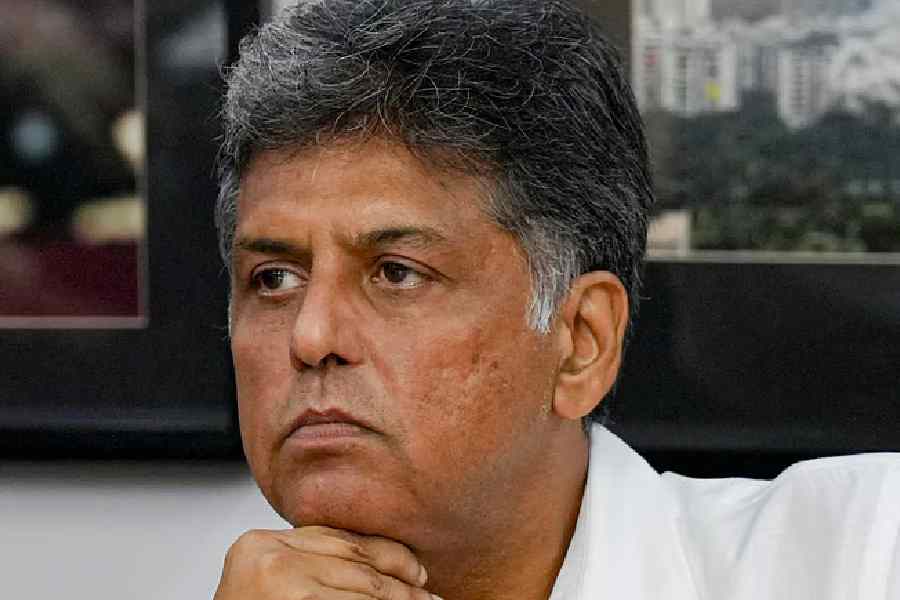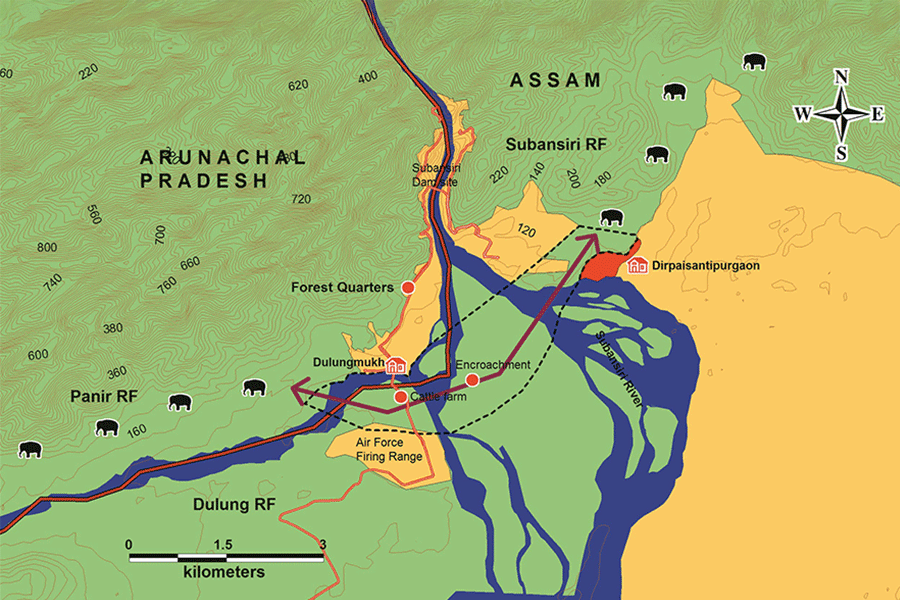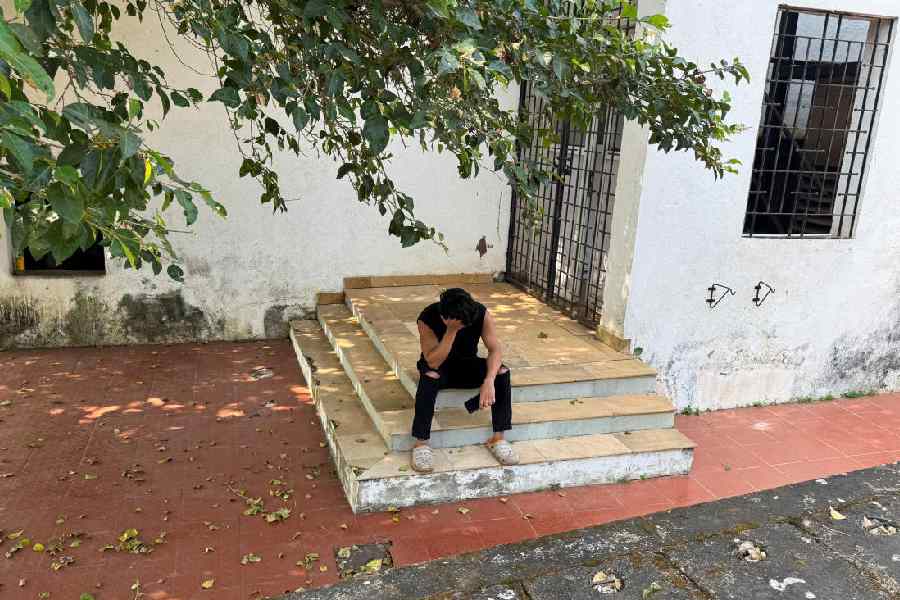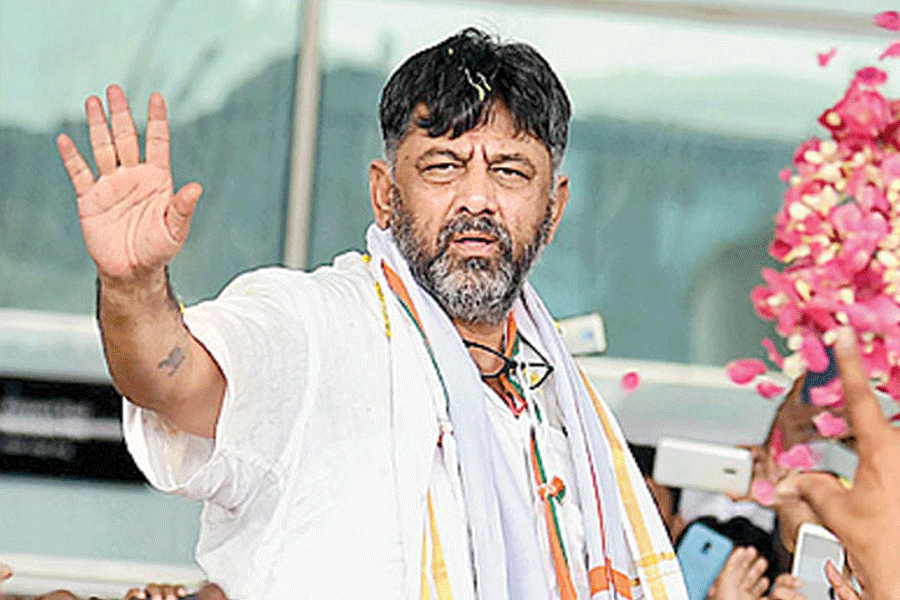
The high solitary chair - surrounded by low sofas meant for visitors - tells its own story. The chair is reserved for the former students' leader who twice became the chief minister of Assam. His portraits hang on the walls of the high-ceilinged hall adorned with large Assamese wicker hats.
Visitors rise when Prafulla Kumar Mahanta enters the room and takes his chair. The leader of the Asom Gana Parishad (AGP) and former chief minister has been out of power for 15 years. There was a time when it seemed as if he had been pushed into the margins of state politics. But, clearly, the man described by a political analyst as the "tallest" Opposition leader in today's Assam is back in the reckoning, though he insists he is not in the race for the CM's chair.
"I have never been very ambitious as a politician," he says.
State Assembly elections are being held in Assam, with the second phase of polling slated for tomorrow. The election frenzy is palpable at Mahanta's official residence in the high-security Old MLA Hostels in Guwahati, the state capital.
A fleet of vehicles, mostly SUVs, is parked outside the white house, one of several identical quarters behind an iron gate manned by armed policemen who let in only those with appointments.
Inside, a dozen party leaders are waiting in a cavernous hall to meet the six-time MLA, contesting for yet another term as a legislator in the 126-member Assembly. Among them is AGP state president Atul Bora.
Even though he is no longer the president of the AGP, a post he resigned from after the party's debacle in the 2014 general elections, there is little doubt that the AGP and Mahanta are still synonymous.
His party surprised political observers when it announced a tie-up with the Bharatiya Janata Party (BJP) for the state Assembly polls. The alliance wasn't as much of a surprise as the fact that the AGP was the junior partner in the tie-up in a state where the BJP, till very recently, was a political non-entity.
But Mahanta's objective is simple - the AGP has to oust the Congress, he stresses.
"We have joined hands with the BJP to drive the Congress from power in Assam. That is our only aim," the 63-year-old leader states.
Mahanta, wearing a white safari suit paired with shiny black boots, accuses the Tarun Gogoi government of failing to deliver "on all fronts" despite being in power in the state for 15 years.
"Roads or highways that are being constructed now were started by us. The credit for the ongoing four-lane highway, which aims to connect Assam with the other northeastern states, goes to former Prime Minister Atal Bihari Vajpayee," he says.
The once-firebrand leader appears to have mellowed over the years, speaking now in a voice so low you can barely hear him without straining your ears. Yet, Mahanta's influence, if diminished, persists in Assam politics.
The twice-elected chief minister who ran the state from 1985 to 1990 and then from 1996 to 2001 was the undisputed leader of the Assam movement, a six-year-long, often violent, agitation spearheaded by the All Assam Students' Union (Aasu) against illegal migrants from neighbouring Bangladesh.
The movement had culminated in the Assam Accord of 1985, signed in the presence of the then Prime Minister Rajiv Gandhi. And that very year, AGP was born after the All Assam Gana Sangram Parishad, formed by Aasu to help run the movement, was dissolved. The AGP was voted to power in the aftermath of the movement.
Mahanta was 32 when he first became chief minister. He got married as CM in 1998. "I had no political ambitions at that time. We formed the AGP, a regional party, only to help implement the Assam Accord, as the people had wanted."
Not surprisingly, the Assam Accord dominates any conversations with Mahanta. And the issue of illegal immigrants still rankles.
"The Congress governments, both at the Centre and in the state, have done nothing to implement the accord. In fact, they have many illegal migrants among their voters," the AGP leader says.
Mahanta acknowledges the failure of his governments to implement what is known as the three Ds of the accord - detect, delete and deport. "We tried but did not have the power to implement it. The Union home ministry was supposed to implement the accord but did precious little to detect the illegal migrants, delete their names from electoral roles and deport them,'' he says.
The son of a schoolteacher from Uluoni village in Nagaon district, some 125km from Guwahati, says he was sucked into the Assam movement as a student at Gauhati University, where he did his BSc and LLB.
As Aasu president, he witnessed the effect of "rampant illegal migration" on Assamese society. "We wanted to stop that. Politics was far from our mind then," says the MLA from Barhampur in Nagaon district, from where he is seeking re-election.
If the BJP-led alliance wins in the Assembly elections - and he believes it has a good chance - the BJP, with its government in Delhi, will be in a better position to implement the accord, he holds.
"I want the accord implemented this time, more than anything else," Mahanta stresses. He believes Assam also needs jobs for the educated youth and measures to stem floods and erosion, which are among the poll issues.
Mahanta has been on a political roller coaster that has seen several ups and downs over the years.
He quit as AGP president in September 2001, after the party lost to the Congress, in the aftermath of a raging controversy about his personal life. A young Assamese woman claimed Mahanta had married her secretly at a Mumbai temple, which he dismissed as untrue.
He was virtually thrown out of the AGP in August 2005 following allegations that he had clandestinely organised killings of Ulfa (United Liberation Front of Asom) family members as chief minister to bring the militant outfit down to its knees, a charge he had staunchly denied. He floated a new party called the Asom Gana Parishad (Progressive) but merged it with the AGP in 2008. In 2010, he was made Opposition leader in the Assembly.
Mahanta became the party president in 2012 only to resign in 2014 after the AGP failed to win any of 14 Lok Sabha seats in Assam. In the 2011 Assembly polls, it won 10 seats, but now has only seven MLAs. A party legislator died and two MLAs switched over to the BJP last December.
Not surprisingly, all is not well between AGP and the BJP. Mahanta, for one, is not happy with the share of seats allotted to the AGP by the BJP. The former CM says he was not part of the AGP committee that brokered 24 seats for the party. "For a party that has formed two governments in Assam in the past, we should have been given at least 50 seats to contest in this election," he says.
Mahanta believes that the BJP was possibly "afraid" of giving more seats to the AGP fearing that the regional party could turn out to be the "deciding factor" in forming an anti-Congress government in the state in a post-poll scenario.
There are political differences between the AGP and the BJP, too. While the BJP chief ministerial candidate Sarbananda Sonowal, a former AGP leader, says that his party is not against Hindu migrants from Bangladesh, the AGP maintains that all illegal immigrants who entered Assam in 1971 (when Bangladesh was created) or later should be identified and deported.
"If they want to rehabilitate the illegal migrants from Bangladesh, whether they are Hindu or Muslim, let them do that outside Assam, not in Assam," stresses Mahanta, echoing his party's official position.
The AGP leader says Assam's demographics have changed with illegal migrations which, while slowing down in recent years, have not stopped.
"Even my own district, Nagaon, has now become a Muslim-majority district. Land has become scarce in Assam after several northeastern states were carved out of it over the years. Whatever we have is being taken away," he notes.
It's not clear what role he'll play after the polls. Mahanta stresses that he is not aspiring for a ministerial berth in the event of the BJP-led coalition coming to power in Assam.
"I don't want to be a minister. I only want to make sure that the Tarun Gogoi government is replaced with an anti-Congress government," he asserts.
But what about becoming chief minister again? "That question simply does not arise," he says, with a dismissive flourish of his hand.
Being in politics for so long has taken a toll on his personal life. He says that his wife Jayshree and their two sons and a daughter keep asking him whether he will ever have time for them. He was also injured in a road accident with his son Subham last February.
"But I remain busy, taking care of my party and my constituency and spending my free time reading books on society and history," he says.
Prafulla Mahanta has been there, done that. But don't count him out - not just yet.

